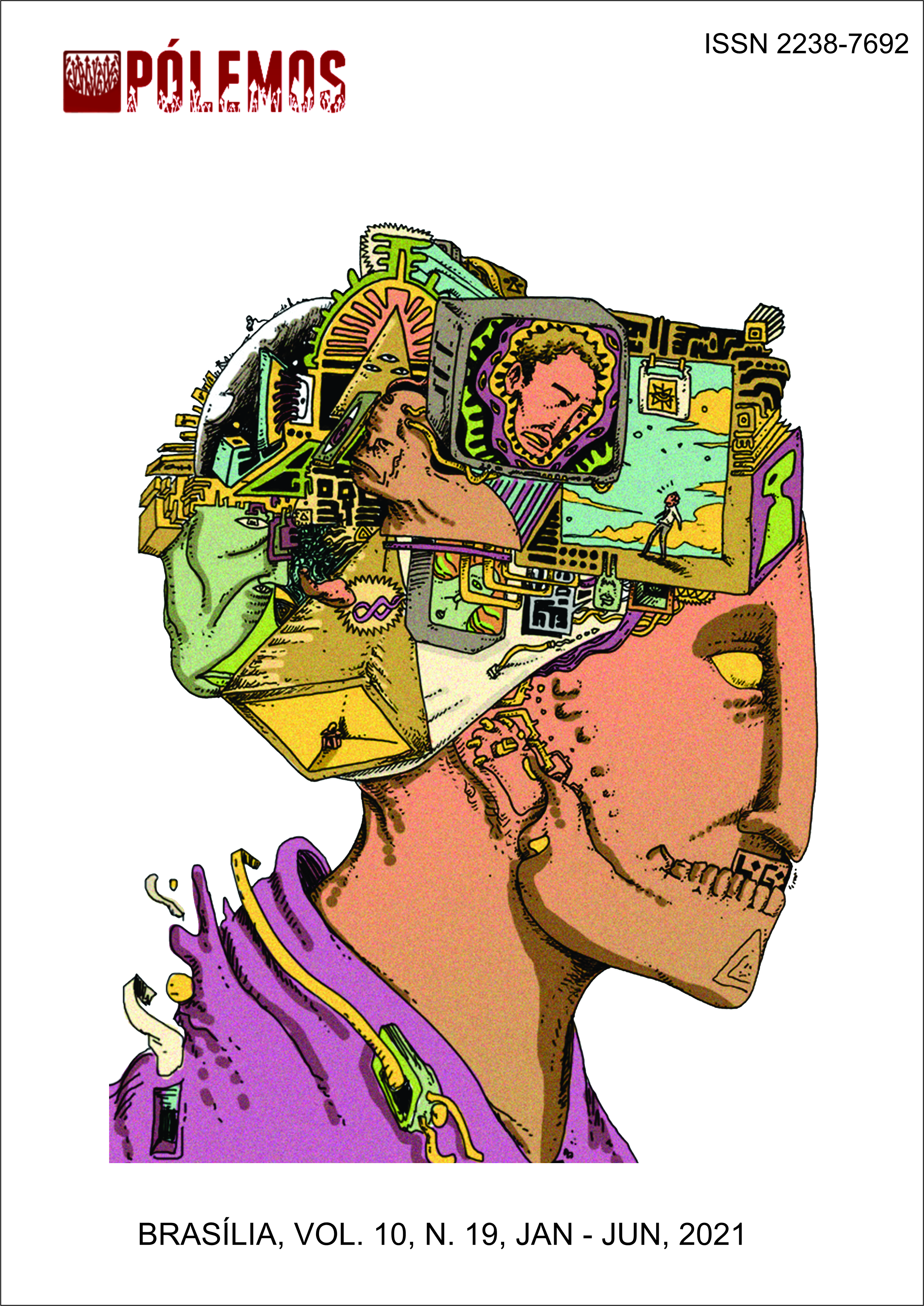KLÉOS, NÓSTOS, ARETÉ, OÎKOS
notions for thinking about the female presence in the Odyssey
DOI:
https://doi.org/10.26512/pl.v10i19.33802Keywords:
Areté. Kléos. Women, Nóstos. Oîkos.Abstract
We intend, while reading Homer’s Odyssey, to analyze the role of female figures through the concepts of kléos, nóstos, oîkos, and areté, in order to support a vision in which nymphs, humans and female magical creatures would be the enablers of Odysseus’s triumph in fulfilling his hero journey. Starting from reading the Homeric epic (in the translations by Carlos Alberto Nunes, Christian Werner and Trajano Vieira), as well as scientific articles and philosophical essays on the female presence, the objective is to: 1. define the four referred concepts in the Homeric universe; 2. point out the female figures with the highest incidence/prominence in the narrative; 3. explain the exercise of bringing these figures closer to such concepts, focusing on Penelope, Athena, Circe and Calypso; and, 4. finally, to indicate the need for the presence and action of women in Odysseus’s adventure, not only so that he can return home, but so that his glory is able to materialize.
Downloads
References
AUSTIN, N. Archery at the dark of the moon. Berkeley, Los Angeles, London, 1975.
CARPEAUX, Otto Maria. História da literatura ocidental. 3. ed. Brasília: Senado Federal, Conselho Editorial, 2008. 4 v. (Edições do Senado Federal ; v. 107-A)
HOMERO. Odisseia. Ed. bilíngue. Trad. Trajano Vieira. 3ª Edição. São Paulo: Editora 34, 2014.
HOMERO, Odisseia. Trad. Carlos Alberto Nunes. Rio de Janeiro: Ediouro, 2002.
JAEGER, W. Nobreza e Arete, In. Paideia: a formação do homem grego. Trad. Artur Mourão. São Paulo: Martins Fontes: 2001.
LIDDELL-SCOTT. Greek-English Lexicon. New York: Harper and brothers, Franklin Square, 1883.
LOUDEN, B. The Odyssey: structure, narration, and meaning. Baltimore & London: The Johns Hopkins University Press, 1999.
SAIS, L. A. Mulheres de Homero: o caso das esposas da Odisseia. 2016. 186 f. Tese ”“ (Doutorado em Letras) ”“ Departamento de Letras Clássicas e Vernáculas da Faculdade de Filosofia, Letras e Ciências Humanas, Universidade de São Paulo.
PERSEUS Digital Library. Disponível em:. Acesso em: 24 de out. 2018.
RAGUSA, G. Fragmentos de uma deusa: a representação de Afrodite na Lírica de Safo. Campinas: Editora Unicamp, 2005.
STANFORD, W. B. The Odyssey of Homer. New York: New York University Press, 1965.
KATZ, M. A. Penelope’s Renown: Meaning and Indeterminacy in the Odyssey. United Kingdom: Princeton University Press, 1991.
KATZ, M. A.“The divided world of Iliad VI”. Women’s Studies viii/ 1-2, 1981.
VERNANT, Jean-Pierre. A bela morte e o cadáver ultrajado. In: Discurso, São Paulo, Editora Ciências Humanas, n. 9, 1978, p. 31-62.
POMEROY, Sahra. Diosas, rameras, esposas y esclavas: mujeres en la antiguedad classica. 3 ed. Madrid: Ediciones Akal, 1999.
LESSA, Fábio de Sousa. O Feminino em Atenas. Rio de Janeiro: Ed. Mauad, 2004.
HADOT, Pierre. O Véu de Ãsis: ensaios sobre a história da ideia de natureza. Trad. Mariana Sérvulo. São Paulo: Edições Loyola, 2006.
Downloads
Published
How to Cite
Issue
Section
License
Copyright (c) 2021 PÓLEMOS – Revista de Estudantes de Filosofia da Universidade de Brasília

This work is licensed under a Creative Commons Attribution-NonCommercial-NoDerivatives 4.0 International License.
Todos os trabalhos que forem aceitos para publicação, após o devido processo avaliativo, serão publicados sob uma licença Creative Commons, na modalidade Attribution-NonCommercial-NoDerivatives 4.0 International Public License (CC BY-NC-ND 4.0). Esta licença permite que qualquer pessoa copie e distribua a obra total e derivadas criadas a partir dela, desde que seja dado crédito (atribuição) ao autor / Ã autora / aos autores / às autoras.


